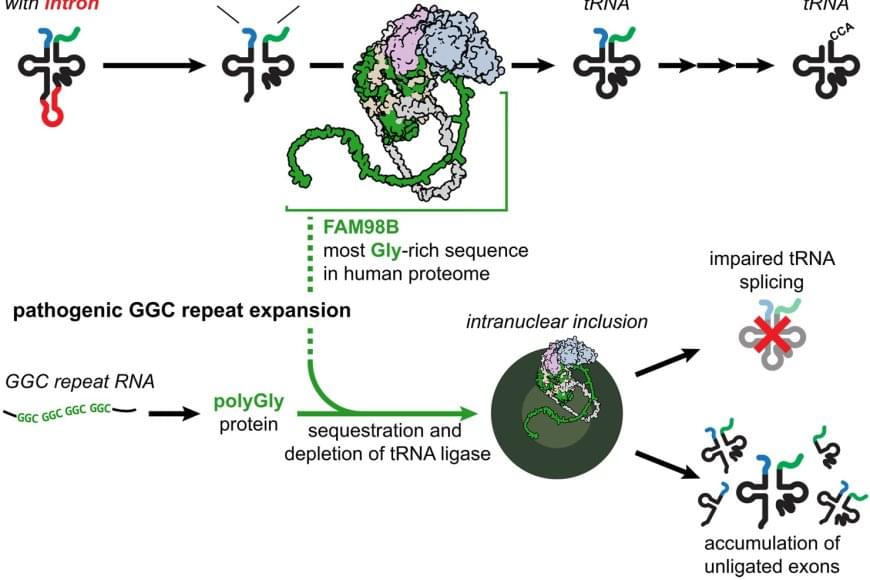Neurodegenerative disorders, such as Alzheimer’s disease and Parkinson’s disease, are devastating and incurable diseases. Although many neurodegenerative diseases are characterized by abnormal protein aggregation in the brain, a limited understanding of whether and how aggregated proteins cause brain cell dysfunction and death represents a major barrier to developing effective treatments.
Inspired by similar approaches in cardiovascular disease and cancer, the researchers focused on rare genetic forms of neurodegeneration as a powerful way to uncover fundamental mechanisms tying protein aggregation to brain disease. Thier work unexpectedly linked protein aggregation in genetic forms of neurodegeneration to disrupted processing of transfer RNAs (tRNAs), revealing an important mechanism that might be therapeutically targeted in these disorders.
The authors were interested in genetic forms of neurodegeneration caused by GGC trinucleotide repeat expansions (DNA sequence mutations caused by copying this 3-letter sequence too many times in a row). These mutations produce aggregation-prone proteins with long stretches of a single repeated amino acid (glycine).
